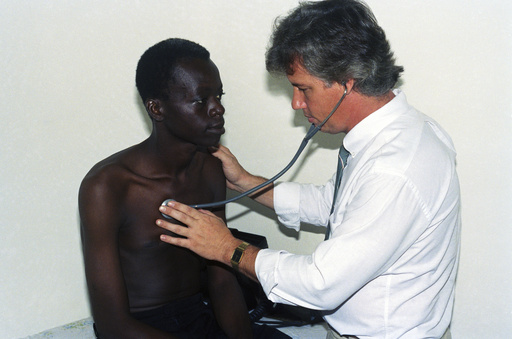
A significant amount of time has passed since the height of deaths associated with AIDS, which were often tragic, resulting from diseases or infections that the body would typically fight. These fatalities ignited public outcry and urged governments into action. In the United States, the creation of PEPFAR, or the President’s Emergency Plan for AIDS Relief, marked a pivotal moment,being hailed as one of the most effective foreign aid initiatives in history. Today, while HIV, which is the virus causing AIDS, remains manageable with medication, it still lacks a definitive cure.
However, the recent decisions made by the Trump administration have significantly slowed down foreign aid, as claims of wastefulness circulate, causing disarray within a system that has successfully sustained millions of lives for over two decades. Complications surrounding a temporary waiver for PEPFAR, along with the challenges of resuming its activities amid significant changes to U.S. personnel, contractors, and funding, have left many individuals with HIV at risk of losing access to life-saving medications. Time is of the essence for those currently unable to receive the treatments necessary to manage AIDS effectively.
The global fight against HIV, led by the U.S., has been remarkably successful, with AIDS wards that once overflowed with patients now largely a thing of the past. This has led health professionals, patients, and community leaders to express serious concerns about the potential resurgence of such tragic scenes if the Trump administration does not change its stance or if another leader does not step up to fill the gap left by U.S. reductions in aid.
The U.N. AIDS agency recently warned that, without action, we could potentially see an increase of 6.3 million AIDS-related deaths in the next five years, which is alarming in an era where complacency regarding HIV seems to be growing. Meanwhile, the decline in condom usage among younger demographics, contrasted with the optimism surrounding new medications that could eradicate AIDS, presents an urgent public health issue.
The agency has now begun to monitor new HIV infections closely since the aid freeze took effect. Understanding the consequences of halting HIV treatments reveals a grim outlook: the immune system deteriorates significantly. HIV spreads through bodily fluids and progressively damages the immune response, making individuals susceptible to diseases that are typically rare in healthy populations. The emergence of unusual infections in the 1980s was a critical awareness point for health authorities, ultimately leading to the establishment of PEPFAR after millions succumbed to the disease.
With the absence of antiretroviral medication, the virus within the body can begin to multiply again, increasing the likelihood of drug resistance. It may only take a few weeks for the virus levels to become detectable in the bloodstream, heightening the risk of transmission to partners. Infants born to HIV-positive mothers can only evade the virus if the mother received appropriate treatment during pregnancy or if the baby is treated immediately postpartum.
If antiretroviral therapy is not sustained, the individual is likely progressing towards the terminal stage of HIV, known as AIDS. According to the Centers for Disease Control and Prevention, without receiving treatment, a person diagnosed with AIDS typically survives around three years. Initially, the progression may be asymptomatic, yet transmission of HIV remains a concern, and opportunistic infections take hold as the immune system weakens.
Opportunistic infections include severe ailments such as fungal infections, pneumonia, and tuberculosis, which pose significant threats in regions like South Africa, where HIV and TB rates are among the highest globally. The ramifications of halting HIV treatment could be catastrophic, as the immune system progressively loses its ability to fend off diseases and every daily activity becomes potentially hazardous.
The critical nature of adhering to a daily medication regimen has long been emphasized. However, this foundation is now under threat. Currently, numerous U.S.-funded health organizations in countries like Kenya and Ethiopia have had to lay off employees, leading to substantial vacancies in HIV testing, education, and healthcare services across the continent that has been heavily reliant on PEPFAR. Some clinics have begun turning patients away due to these overwhelming disruptions.
Repairing the damage caused by the recent foreign aid freeze and discerning the implications of the temporary waiver for PEPFAR is a process that requires significant time—something many individuals affected by HIV may not have available.
Furthermore, Winnie Byanyima, the executive director of the U.N. AIDS agency, articulated fears that more resistant strains of the virus could emerge. This situation could also lead to an increase in the number of children left orphaned due to AIDS, reminiscent of the days when the world struggled desperately against a disease with limited resources to combat it.
This article has been revised to accurately refer to medications that inhibit the progression of HIV as antiretrovirals rather than antivirals.

